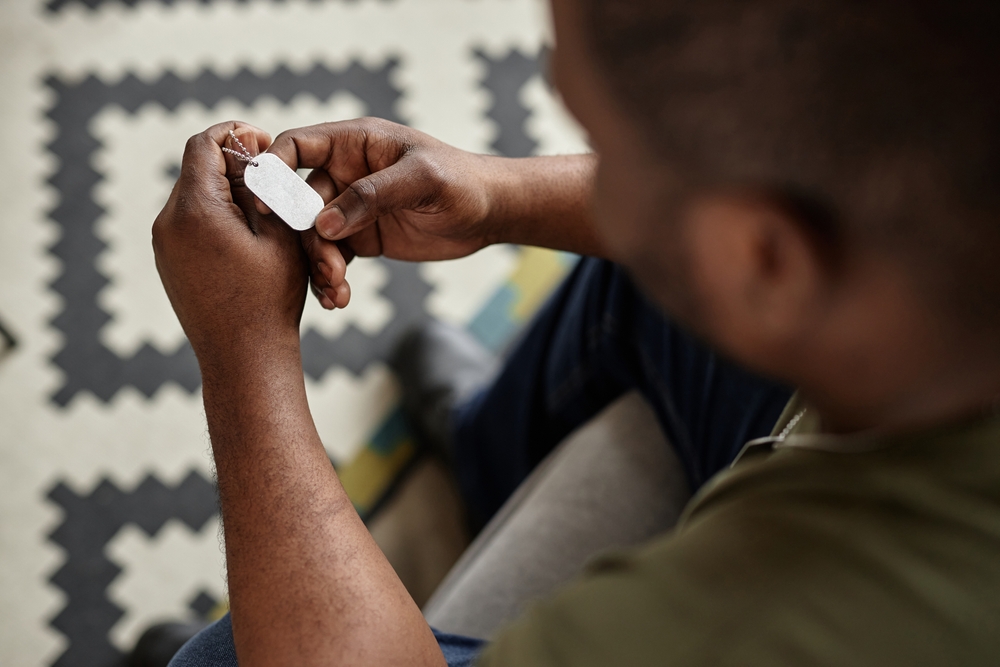The Stigma of Seeking Help: Why Do Veterans Avoid Addiction Treatment?
If you care about a veteran in your life, you may have noticed them struggling with the invisible wounds of military service. They might be drinking alcohol more frequently, using illicit drugs to cope, or withdrawing from loved ones due to stigma. You want to help, but when you bring up addiction treatment or mental health services, they shut down or push back.
This is a common challenge. Many veterans avoid seeking help for addiction and mental health issues due to fear, shame, and the stigma surrounding mental health. They may worry about being judged, appearing weak, or jeopardizing their career or VA benefits. Others simply don’t know where to turn or feel overwhelmed by the process.
The Reality of Addiction Among Veterans
Veterans face unique challenges that can increase their risk of addiction. Many struggle with post-traumatic stress disorder (PTSD), depression, or moral injury—a deep sense of guilt or shame related to their actions during military service. These issues can make the transition to civilian life incredibly difficult, leading some veterans to turn to drugs and alcohol as a way to cope.
What begins as occasional drinking alcohol to relax or using illicit drugs to escape can quickly spiral into a more serious problem. Without access to proper mental health services, these struggles can worsen over time, affecting not only the veteran but also their families and communities.

The Department of Veterans Affairs (VA) and the Department of Defense (DoD) offer a range of addiction treatment and mental health services, but many veterans do not take advantage of these resources. The stigma surrounding mental health and addiction often prevents them from seeking the help they need.
Barriers Preventing Veterans from Seeking Help
Several factors can prevent veterans from accessing treatment programs, including:
1. The Stigma Surrounding Mental Health
Military culture emphasizes strength, discipline, and self-reliance. Many service members are taught to handle challenges on their own, which can make asking for help feel like a failure. This mindset often persists even after leaving the military.
Additionally, veterans may encounter stigmatizing language about addiction and mental health. Terms like “junkie” or “broken” can deepen feelings of shame and discourage them from seeking treatment. They may fear being labeled or treated differently if they admit to struggling with PTSD, depression, or substance use.
2. Fear of Judgment
Many veterans worry about how others will see them if they seek treatment. They do not want to be judged by their peers, family, or community. Some fear they will lose the respect of fellow veterans who believe in staying strong no matter what.
In some cases, veterans fear judgment from employers. They believe that admitting to PTSD and depression or a history of drug and alcohol use may hurt their job prospects. They might worry that employers will view them differently if they disclose a history of mental health issues or addiction.
3. Concerns about Career and VA Benefits
Some veterans believe that seeking mental health services or addiction treatment could negatively impact their military career or VA benefits. They may fear that reaching out for help could lead to a dishonorable discharge or limit future opportunities.
In reality, VA benefits include coverage for addiction treatment and mental health services. The Department of Veterans Affairs actively encourages veterans to seek help, but many are unaware of these resources or distrust the system.
4. Lack of Awareness About Treatment Programs
Many veterans simply don’t know where to find help. They may be unaware of the outpatient programs, peer support groups, and veteran-specific treatment programs available to them. Without clear guidance, they may feel lost and choose to avoid treatment altogether.
The Importance of Veteran-Specific Treatment Programs

Veterans need treatment programs that understand the unique challenges of military service. Issues like PTSD, depression, moral injury, and the difficulties of transitioning to civilian life require specialized care. A one-size-fits-all approach to addiction treatment often falls short because it fails to address the root causes of substance use in veterans.
Veteran-specific programs are designed to meet these needs. They go beyond treating addiction by addressing the underlying mental and emotional wounds that often contribute to substance use. These programs offer evidence-based therapies for PTSD, trauma counseling, and support for co-occurring conditions like depression and anxiety. They also provide a sense of camaraderie by connecting veterans with peers who share similar experiences, creating a supportive environment where they can heal together.
Additionally, veteran-specific programs often collaborate with the Department of Veterans Affairs (VA) and the Department of Defense (DoD) to ensure veterans receive the benefits and specialized care they deserve. Whether through inpatient or outpatient programs, these services are tailored to fit the unique needs of veterans.
How Families and Communities Can Help
If you’re concerned about a veteran in your life, there are several ways you can support them:
1. Encourage Open Conversations
Talking openly about mental health and addiction can help break the stigma. Let veterans know that seeking help is a sign of strength, not weakness. Encourage them to share their feelings and experiences without fear of judgment.
2. Share Available Resources
Many veterans are unaware of the resources available to them. Help them navigate VA benefits, local treatment programs, and peer support groups. Providing clear, actionable information can make it easier for them to take the first step toward recovery.
3. Avoid Stigmatizing Language
The words we use matter. Avoid labels like “addict” or “alcoholic,” which can reinforce shame. Instead, use person-first language like “someone struggling with addiction” or “a veteran in recovery.” This small shift can make a huge difference in how veterans perceive themselves and their willingness to seek help.
4. Offer Support Without Judgment: Start the Conversation
Talking about mental health helps reduce stigma. Let your loved one know you’re there for them, but avoid pressuring them into treatment. Sometimes, simply listening and showing unconditional support can encourage them to take the next step when they’re ready.
5. Educate Yourself
Learn about the challenges veterans face, including PTSD, depression, and moral injury. Understanding these issues can help you provide more compassionate and informed support.
6. Provide Information About Resources
Many veterans do not know where to start when seeking help. You can guide them by sharing information about VA benefits, local treatment programs, and peer support groups. Look into addiction treatment options together and help them find the right program for their needs.
7. Be There Without Pressure
Support without judgment is key. Let your loved one know you are there for them, but do not force them into treatment. Sometimes, just having someone listen and show care encourages them to take the next step when they are ready.

We Support Veterans on the Path to Recovery
At More Than Rehab, we are committed to supporting veterans on their path to recovery. Our veteran-specific treatment programs are tailored to address the impact of PTSD, depression, and the difficulties of transitioning to civilian life. We provide real solutions, not just temporary fixes, and work closely within VA and DoD guidelines to ensure veterans receive the care they deserve.
Recovery is possible, and no one has to face these challenges alone. Together, we can break the stigma and help veterans find the treatment and support they need to heal. Reach out to us today.





